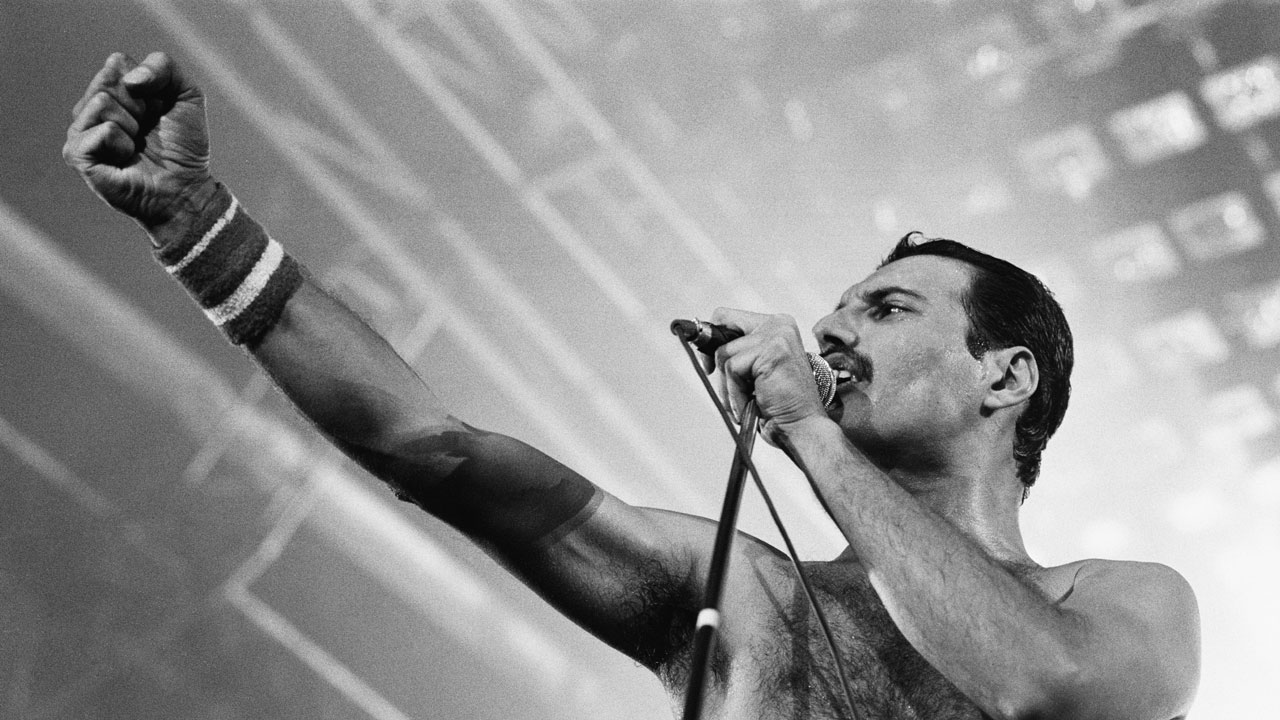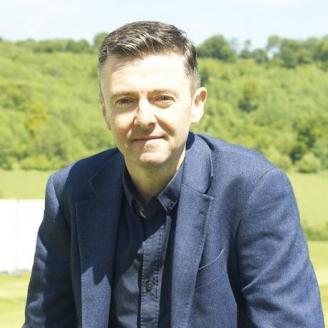One day back in the late 80s, I saw Freddie Mercury in the street. Appropriately, it was in Kensington High Street, close to his house and also to the spot where he and Roger Taylor had begun their now famous market stall. Freddie looked like he was arriving for a bash at the Roof Gardens. It was an early evening in summer. Suddenly there he was, a slight man, but upright and barrel-chested, and with a black moustache that seemed to take up at least half of his bony face.
Like many very famous people, there was a hubbub about him, and a sense of expectation. One of his pet hates was supposed to be getting recognised in public, but as the bystanders spotted him he gave everyone a small wave and a flash of those big old gnashers before gliding off. And then, remarkably, a round of applause broke out. Freddie looked back and smiled again, obviously pleased. This was post- Queen's Live Aid triumph and pre-AIDS, and smack in the middle of Queenʼs second golden era, a time when this seemingly unimposing man could hold football stadiums full of people in his thrall.
Itʼs easy now to remember Freddie Mercury just as he was in his later years: fey and restrained, rarely seen, reclining in luxury with his cats and his jewellery. Even before the burdens of terminal illness he gave the impression of a man whoʼd had his fill. In the rare interviews he gave there was no Radiohead-style introspection, but instead an affecting sadness.
But in his pomp – open-chested leotard, ballet slippers, mad mop of black hair, teeth courtesy of Red Rum – Freddie Mercury and Queen were a gloriously unashamed metal band. They were a bravura show, mad and excessive enough for NMEʼs famously humourless journalist Nick Kent to call them “a bucket of urine”. But Freddie was special, he knew it, and he didnʼt give two hoots who knew that he knew it, either.
“Freddie Mercuryʼs a pretty regular guy,” NME reported back in 1974, with a complete lack of prescience. “He uses regular Biba black nail varnish, regular black eye liner, and straightens his hair with regular electric tongs. You get the idea that heʼs bored with being told that Queen are going to be big – he reckons heʼs a star now, and wears that star apparent attitude like a well-fitted pair of trousers. Freddieʼs not bent, just camp. Ask him if heʼs queer and heʼll turn round and say: Iʼm as gay as a daffodil, dear.ʼ He has a habit of saying dearʼ at the end of every sentence. Drummer Roger Taylor expounds: Freddieʼs just his natural self: just a poof, really.ʼ”

Freddie Mercury was Britain’s first Indian rock star. This fact and the nature of his sexuality were the two areas of his short life about which he would be intentionally obscure. Although he was born on the East African island of Zanzibar on September 5, 1946, his parents were both Indian; they were Parsees from Gujarat. Mercury would often make note of his Persian roots, but the Parsees had been driven from Persia a thousand years before.
They landed on the Gujarat coast and populated its greatest city, Bombay. Every Patel in the world can trace their roots to Gujarat. The Encyclopedia Britannica says of the men: “They have light olive complexions, a fine aquiline nose, bright black eyes, a well-turned chin, heavy arched eyebrows, and thick lips, and usually wear a light curling moustache.” Sounds familiar, somehow. The Parsee faith worship Zarathrustra, later adopted by the philosopher Fredrich Nietzsche.
Bomi Bulsara, Freddieʼs father, had actually taken his surname from Bulsar, the small town north of Bombay and south of Ahmedabad that he grew up in. Thereʼs a strong trend towards emigration from the province, too. There are said to be more Indian immigrants from Gujarat than anywhere else on the subcontinent. Bomi and his wife Jer travelled to Zanzibar, where Bomi worked as a cashier in the High Court. He and Jer, from whom Freddie inherited both his fine bones and protruding teeth, christened him Farrokh. Kashmira, Freddieʼs sister, came along six years later.
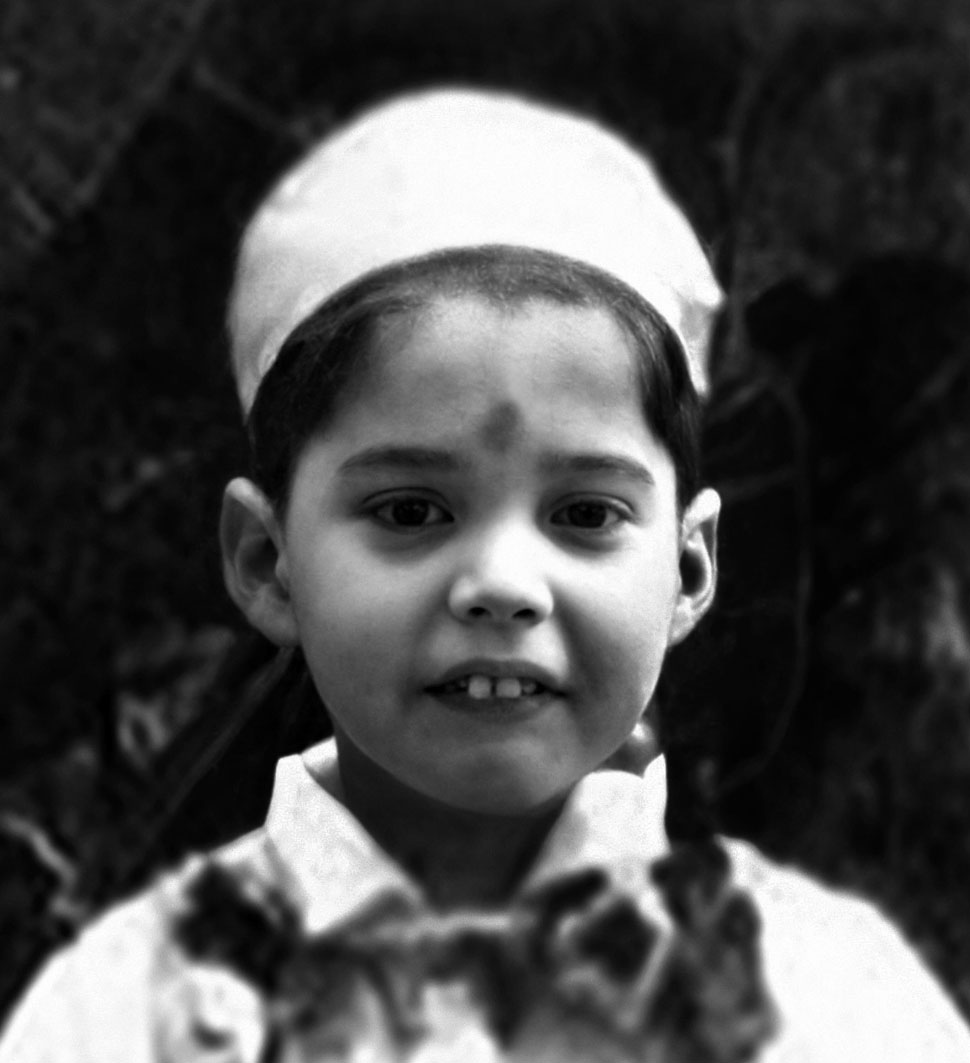
Freddie would not set foot in England until he was 17. His background was almost wholly Indian. His early childhood on Zanzibar (the island is known as the Isle of Spices) sounds idyllic. For 10 years he was educated near Bombay at St Peterʼs School. Family pictures show Freddie as an emergent showman, grinning his toothy grin from winnersʼ podiums on sports days (his sister has kept some of his trophies, including an unlikely one for boxing), one of which has an older Freddie looking like a youthful Gatsby in sunglasses, linen slacks and two-tone shoes.
Thereʼs also a rare shot of his first band, the Hectics, who performed rockʼnʼroll standards by Buddy Holly, Bill Haley and the like, with Freddie on piano and sometimes vocals too. School wasnʼt entirely the colonial idyll, though. In 1984, he remembered: “All the things they say about them [boarding schools] are more or less true. All the bullying and everything else. Iʼve had the odd schoolmaster chasing me. It didnʼt shock me, because somehow boarding schools… youʼre not confronted by it, you are just slowly aware of it. Itʼs going through life.”
So was Freddie the pretty boy who everyone wanted to lay? “Funnily enough, yes. Anybody goes through that. I was considered the arch poof. Letʼs put it this way: there were times when I was young and green. Itʼs a thing schoolboys go through. Iʼve had my share of schoolboy pranks. Iʼm not going to elaborate further.”
In Zanzibar in 1964, there was an uprising against British rule, and the Bulsaras were faced with a choice: they, in common with the Sultanateʼs other Indian residents, were given six months to settle elsewhere. Freddie, Jer Bulsara remembers, was keen on England. The family travelled from the Isle of Spices in the Indian Ocean, and fetched up in sunny Feltham, West Middlesex, right under the Heathrow flight path. They bought a small terraced house in which Bomi and Jer would live for the rest of Freddieʼs life. Freddie was 17 when he arrived in England, yet he seemed to have little difficulty in settling in. If there was any kind of culture shock, it was a retrospective one.
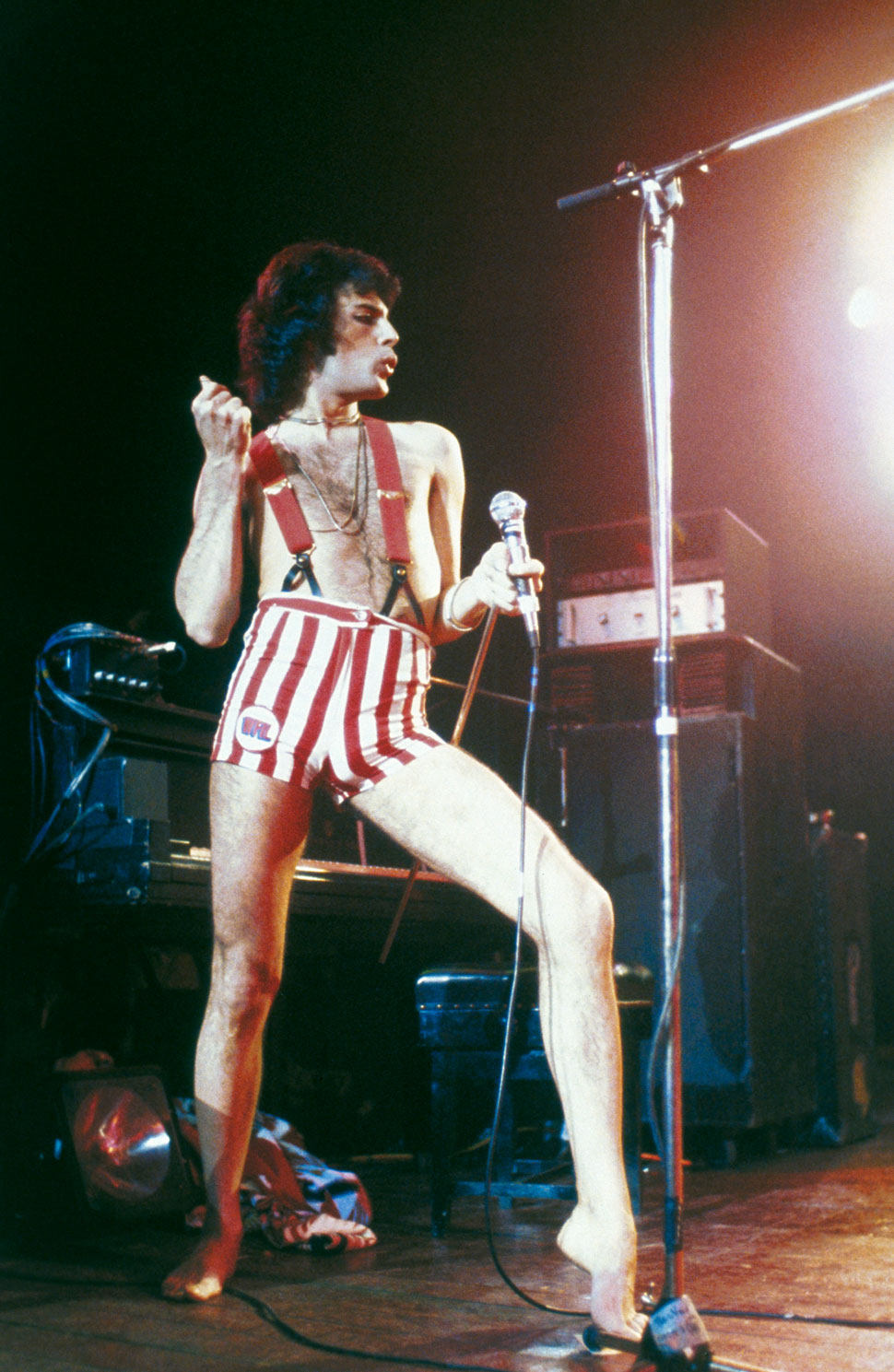
“Well, I kind of grew up in India,” he said. “I saw a lot of poverty over there, but itʼs sort of… You can only sort of reflect poverty when youʼre here, if you know what I mean. If youʼre there, itʼs a norm, it really is. You expect beggars in the street and all that. To people living there, or if youʼre brought up there, you actually believe thatʼs the way of life. So I think when I was a young baby I was just, you know. I was in an English boarding school, and itʼs like, I had boundaries where I couldnʼt go, and I looked upon that and I just thought that was the way India is.”
Freddieʼs hero was Jimi Hendrix. It was hard to see much of him in Zanzibar or Bombay, but in London he could – and did – watch Hendrix play on nine consecutive nights. He could also shop at Biba, buy hippy gear at Kensington Market, and be on hand for the counter-cultural revolution.
He went to Ealing College of Art in 1966 - a hip joint whose alumni included Pete Townshend of The Who, and Ron Wood, guitarist with the Faces and later the Rolling Stones - and graduated with a Diploma in Graphic Art and Design in 1969. He lived in a rented flat in Kensington, and started a market stall with his new friend, Roger Taylor.
“We were selling artwork from some of the students at Ealing,”Taylor recalled. “Then we sold Fredʼs thesis, which was all based on Hendrix. Things like that are probably worth a lot of money now.”
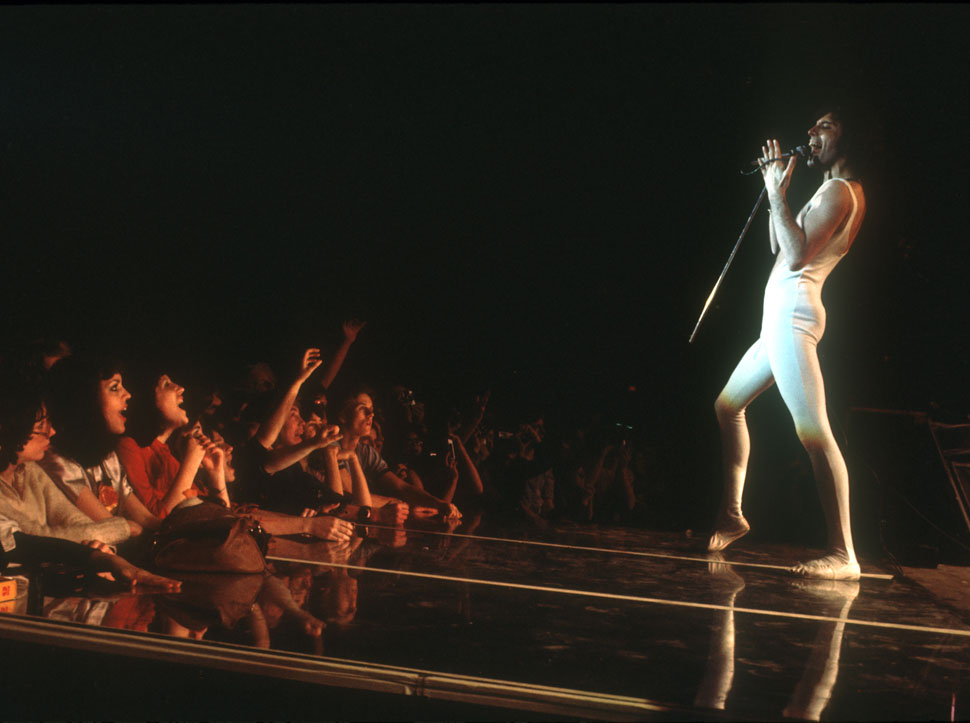
Freddie had met Roger through a mutual friend, Tim Staffell. Staffell and Taylor had a band, Smile, with Brian May. Freddie liked Smile, and he was impressed by Mayʼs major claim to fame: his previous band, 1984, had supported Jimi Hendrix at a gig at Londonʼs Imperial College.
“Iʼd put a lot of work into playing guitar,” May remembered, “and was thinking I was pretty damn good. But Hendrix came along and destroyed everyone. I was deeply jealous, that was the first emotion I felt. Astronomy was going to be my career. Thatʼs what my parents were hoping I would do, really. They wanted me to do a proper job, as we call it in England, and not loon around playing guitars and making a noise.
"So I did my studies, finished school, got my O Levels, got my A levels. I went to Imperial College, did three years and got a BSc Honours in physics, which had a fair bit of astronomy in it, and then I did four years post-graduate for the PhD in astronomy, but I never finished writing the thing up. I published a couple of papers with my supervisor, but thatʼs where I left it. And I donʼt regret leaving it. It was the right time.”
Freddie made an impression on May, too, even though he wasnʼt quite sure why: “Even back then Freddie knew he would be a star. He had no money in his pocket, no success to speak of yet, or even any hope of success, but it didnʼt stop him. He acts the way he does because thatʼs the way he really is.”
Smile somehow evolved into Queen, with May and Taylor joining Freddie, who had by now adopted the rising star in his birth sign, Mercury, as his stage name. John Deacon got the gig after one of the bandʼs girlfriends became friendly with his. By 1970 Queen were gigging, and in 1971 they supported Yes at Imperial College (admission: 50p).
They were no overnight success; Queen I would not emerge for another three years. Freddie: “The moment we made a demo we were aware of the sharks. We had such amazing offers from people saying: Weʼll make you the next T.Rexʼ. But we were careful not to jump straight in. We went to about every company before we finally settled. We didnʼt want to be treated like an ordinary band.
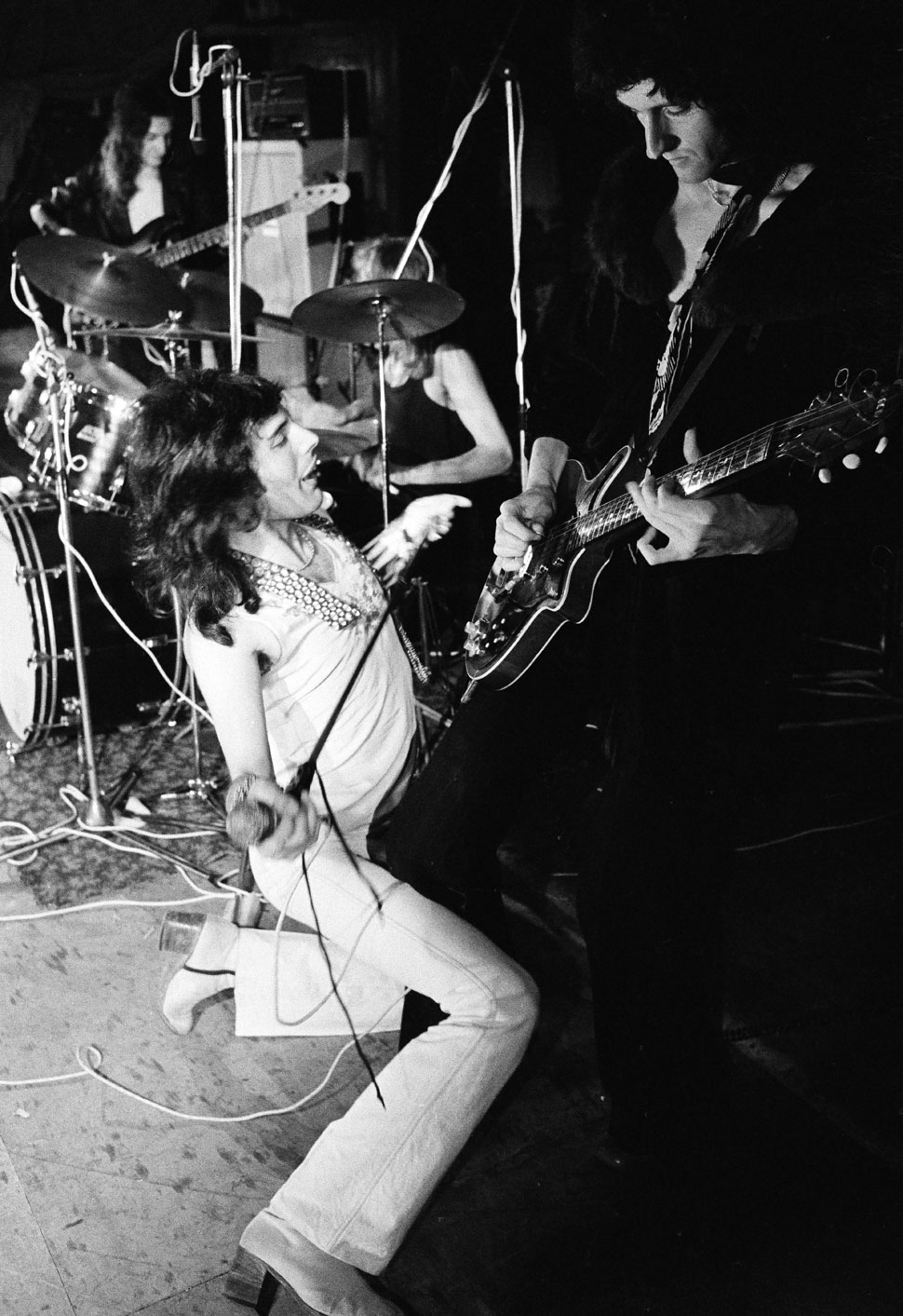
The character of Queen was beginning to emerge. Mercury gave free reign to his natural flamboyance, sucking in a myriad of influences: Hendrix, of course, but also Bowie and glam rock, the thrilling blues power of Led Zeppelin, and the arch art-school madness of proggies like Yes and ELP. As the band defined themselves musically, its character was set, too.
“Everyone,” according to Freddie at the time, “is very highly strung.” The singer even more so. “Iʼm very emotional,” he said. “Whereas before, I was given time to make my decisions, now nearly all of us are so highly strung we just snap. We always argue, but I think itʼs a healthy sign, because we get to the root of the matter and squeeze the best out. But lately so much is happening, itʼs escalating so fast that everybody wants to know almost instantly, and I certainly get very temperamental.”
Queen I, released on July 13, 1973, sold reasonably in America, and the single, Keep Yourself Alive, was championed by the Old Grey Whistle Test. For some reason or another, Queen were hugely popular in Taunton.
The truly iconic Queen did not begin until Queen II and even then the band found themselves visually before they did musically. Theyʼd begun working with the photographer Mick Rock, noted for his pictures of David Bowie and, earlier, Pink Floydʼs Syd Barrett.
The plan for Queen II was for the record to have a ‘black’ side and a ‘white’ side. For the black side, Rock modelled his session on some startling pictures of Marlene Dietrich taken for the 1932 movie Shanghai Express. The four heads, tightly together and harshly uplit against a black backdrop, were powerful and beautiful, too, and not only made the cover of Queen II but also formed the basis for Queenʼs most famous image of all, the singing heads used in the operatic mid-section of the video for Bohemian Rhapsody two years later.
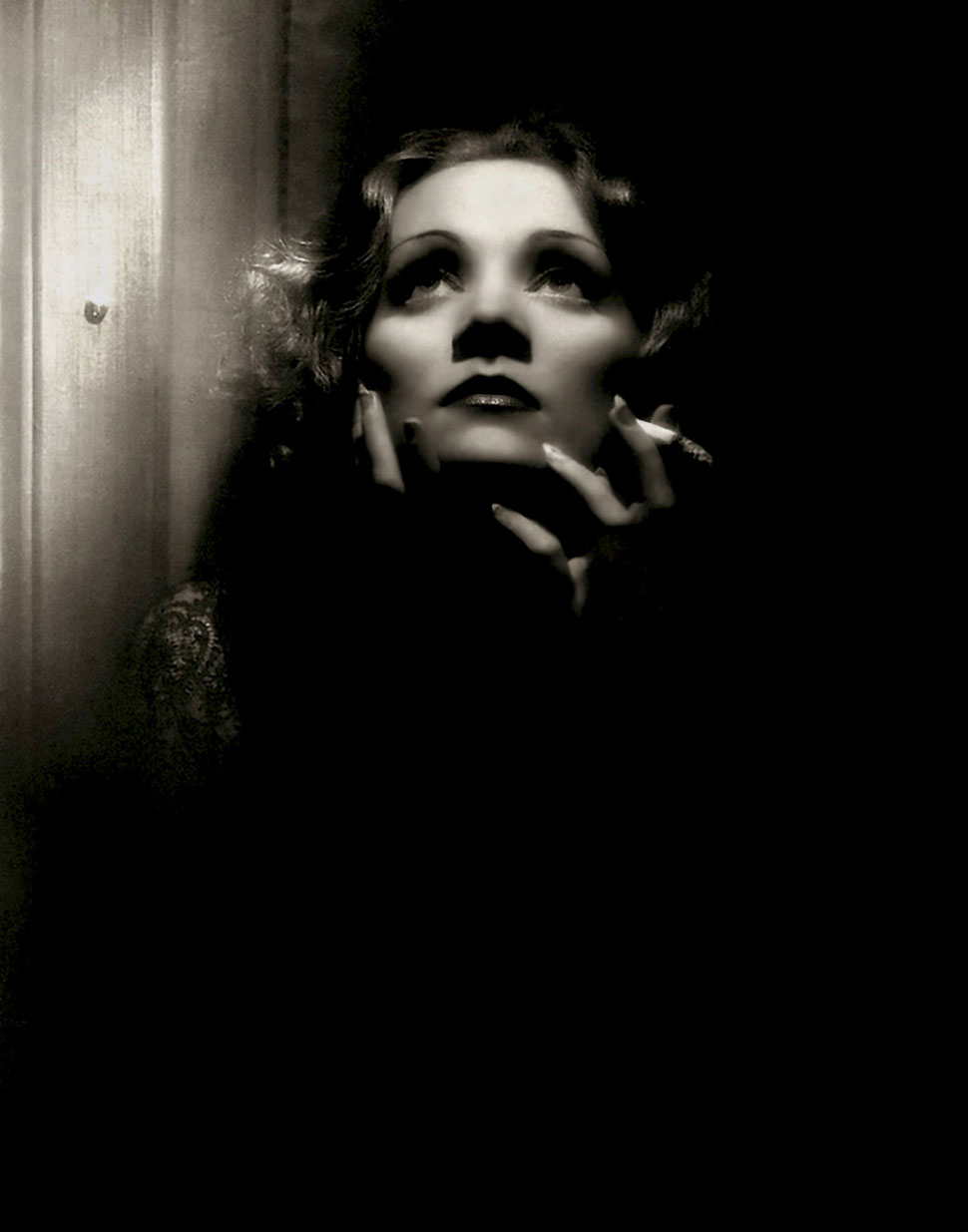
Queen II, released in the Spring of 1974, gave birth to the bandʼs first hit, a more fully realised version of Seven Seas Of Rhye from the first album, and laid the ground for Killer Queen, Now Iʼm Here and the other cornerstone tracks of Sheer Heart Attack, Queenʼs third album, released later the same year.
In an era of heightened creative excitement in which benchmark albums were appearing with amazing regularity, Queen were almost trying too hard. They threw everything from pomp rock to proto-punk and glam pop at the records to see what stuck. It wasnʼt until they recorded A Night At The Opera, in 1975, with producer Roy Thomas Baker that they worked out what was bothering them: they didnʼt fit in at all, and there was no point in trying.
In addition, a change in management to the heavyweight John Reid, who was them busy making his name assisting Elton John, at last gave them representation that: a) wouldnʼt be financially detrimental, and b) intuitively understood the inherent glories of the band.
On the eve of the release of A Night At The Opera, Mercury was wholly aware of what the band had created and of how important it was. As they travelled to the first public playback of it, he declared: “Iʼll never forget this album, dear, never. Weʼve got to have this playback, just to let friends hear what weʼve been up to. The thing is, theyʼll never understand it with one listen. Later on, weʼll all go out, get pissed and forget about the damned album.
“Itʼs taken us about four months, and now weʼve really gone over the deadline with the tour approaching. Itʼs more important to get the album the way we want it, especially after weʼve spent so long on it. The last bits, piecing it together, were more important than any of the rest of it. Itʼs the most important album yet. To be honest, in a way the best judge we had was tonight when we listened back to it, because we just hadnʼt got the time to listen back to it before.
“I think weʼve got the strongest songs ever,” he continued in a breathless rush. “Itʼs going to be our best album, it really is. If I thought there was something wrong with it I would say so, but there are certain things on the album which weʼve wanted to do for a long time. Iʼm really pleased about the operatic thing. I really wanted to be outrageous with the vocals, because weʼre always getting compared with other people, which is very stupid. If you really listen to the operatic bit there are no comparisons, which is what we want.”
The ‘operatic bitʼ, of course, needs no introduction. Roy Thomas Baker first heard Bohemian Rhapsody when Freddie played it for him on the piano. “It was incomplete, but he knew how he wanted it,” Baker remembers. “He stopped and said: Now this is where the operatic section comes in…ʼ”
Baker would grow used to Freddie flouncing in during the sessions saying: “Iʼve just added a few more ‘Gallileos’, dear…” The 24-track tape was passed through the machines so many times that it was said to be semi-transparent by the time Bohemian Rhapsody was finished. Mercury was aware of the songʼs excess, and he revelled in it.
“We donʼt want to be outrageous. Itʼs in us. There are so many things we want to do which we canʼt do all at the same time. Itʼs impossible. At the moment weʼve made an album which, letʼs face it, is too much to take for most people. But it was what we wanted to do. We could have done a few things that are on A Night At The Opera on the first album, but it would have been too much to take for certain people. Really.
“It just so happens that you canʼt cram everything on one album. Itʼs a progression. After the third album, we thought: Now weʼve established ourselves, and we can do certain thingsʼ. Like, vocally, we can outdo any band. We just thought that we would go out, not restrict ourselves with any barriers, and just do exactly what we want to do. It just so happened that I had this operatic thing and I thought: Why donʼt we do it?ʼ
“We went a bit overboard on every album, actually. But thatʼs the way Queen is. In certain areas we always feel that we want to go overboard. Itʼs what keeps us going, really. If we were to come up with an album and people said: Itʼs just like Sheer Heart Attack but there are a few bits on Sheer Heart Attack that are better,ʼ Iʼd give up. I really would. Wouldnʼt you?”
John Reid was insistent that Bohemian Rhapsody be the first single from A Night At The Opera, even though it was obviously too mad and too long, especially for radio stations used to three-and-a-half-minute singles. Nonetheless, Kenny Everett played it 14 times in two days on Capital Radio, and then Top Of The Pops screened the video – at the time an outlandish concept in itself – and the song became a phenomenon. Freddie - his vision, his voice and his teeth now firmly imprinted on the public consciousness - was a star.
“We didnʼt make any money until after the fourth album,” Freddie said later. “Most of our income was consumed by litigation and things like that. We had to use a lot of money, so-called money that we made, to get out of contracts. But it was the best thing we could do. After that it was like a new lease of life.”
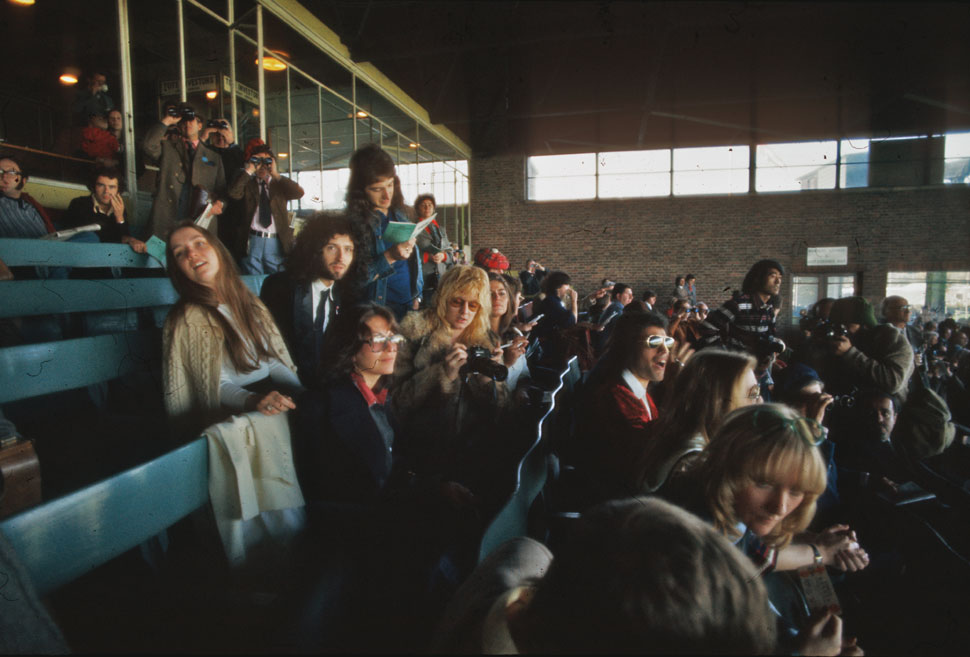
A Day At The Races and News Of The World, which followed – replete with Freddieʼs camp masterpieces We Will Rock You and We Are The Champions – now look like inevitably brilliant and successful follow-ups to A Night At The Opera, but we should remember that Queen marched – or in Freddieʼs case, minced – right through punk rock, although superficially theyʼd become exactly the sort of band that punk sought to destroy. And yet such was the bandʼs joy in their own excesses, such was the force of their momentum, they breezed through.
With their inherent humour, they defused punk as easily as Freddie put Sex Pistol Sid Vicious on the back foot when they were introduced. “Still bringing ballet to the masses, Freddie,” Sid sneered. “Aah, Mr Ferocious,” Freddie mewed with sardonic pleasure, “how lovely to meet you…”
Queen had inadvertently done the Pistols a big favour, too. It was after they withdrew at the last minute from a slot on Bill Grundyʼs Today show that the Sex Pistols took their place and swore their way into infamy. After News Of The World, Mercury was aware of the changing status of the band. It wasnʼt just about making records and touring any more.
“Itʼs time for some stock-taking,” he said. “Weʼve all become businessmen, even though itʼs against our better judgement. Itʼs something that always happens if you get successful. Being a musician is not just cutting discs, unfortunately. I wish it was. Weʼve all got companies now, some connected to music, others not. Iʼm producing Peter Straker, I have my car company… and lots of other fingers in other pies. We must take some time off to get things in perspective or things will start to go wrong.
“Iʼm a very highly strung person. I like having fun, and my job is a very good release for me, but itʼs still my job and I always take it very seriously. And when you are highly strung and you take your work seriously, youʼre bound to appear difficult to the outside world.”
By the start of the 80s, Queen were entering their wilderness years. What punk was unable to do to them, success and excess achieved more easily. Albums of the era like Jazz, The Game and Flash Gordon had all of the musical hallmarks, but precious little of the intensity and fun of their early recordings. Exacerbated by a dreadful relationship with the press (Mercury was rarely interviewed after the NME ran a piece on him with the headline Is This Man A Prat?), singer and band became distant. Mercury in particular came over all Norma Desmond. Speaking to journalist and writer David Wigg in a series of interviews in 1984, he spoke out about the effects of his public image.
“I have to fight that, because if youʼre talking in terms of trying to get a relationship together, Iʼm the nicest person you could meet, my dear. But itʼs just that Iʼm handicapped and I have to fight my so-called stage persona. Most of the time it works against me. The funny thing is, I created the monster. You try to segregate the two and itʼs not easy; itʼs like two sides of a coin. I think over the years I have become bitter, because Iʼve learned more and itʼs made me strong. I have become bitter, and I just donʼt sort of trust anybody, because theyʼve let me down so many times, and because the more youʼve been let down the more you hurt. I feel Iʼm walking around with scars all over the place, and I just think I couldnʼt take another scar.
“You could be the most lonely person. You can be loved by so many thousands of people, yet you could be so lonely. And that makes it worse, because most people just think: How can someone like Freddie Mercury be lonely? He has the money, he has the cars, chauffeurs, the lot.ʼ In fact, sometimes that kind of loneliness is the hardest to bear. You have to put on a persona, and I find it very hard to open up to people because I donʼt trust the buggers.
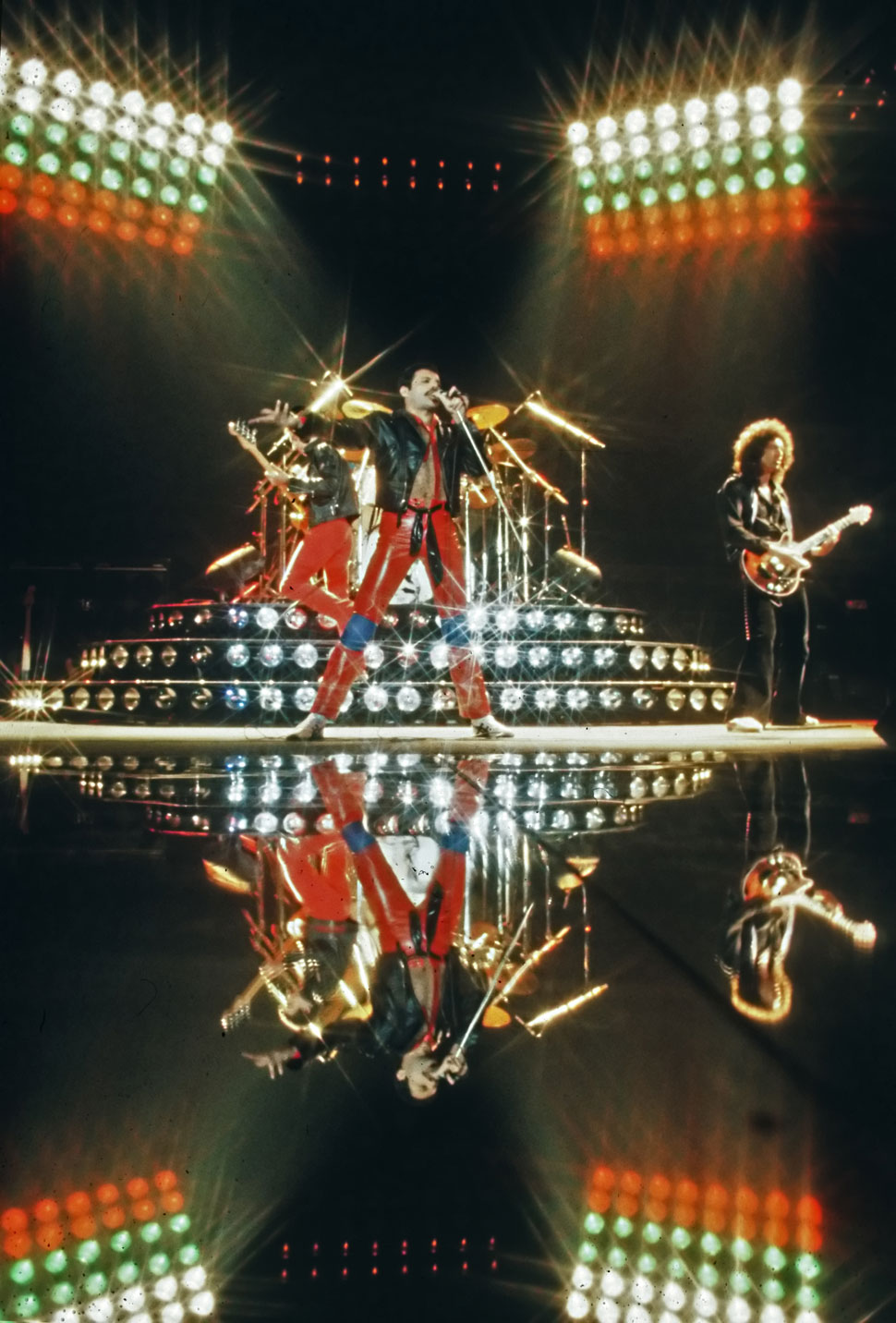
“Iʼm disillusioned, but I think Iʼve got a grip of myself. I seem to be more aware, so itʼs a contradiction in terms, maybe, but itʼs true. Sometimes I wish I didnʼt talk so much to people.
“I feel that I am the manipulator, I can govern this. Itʼs like rockʼnʼroll is the drug, but you govern the drug and itʼs one of those things. I would like to think that Iʼm in the very convenient position of ruling that thing. Otherwise it would be my downfall, and it would have happened a long time ago. Thank God Iʼve got the intelligence to realise that you can only go so far. I would hate to think that anything like that could ruin me. I donʼt need outside stimulus. I donʼt need to, because I feel that I have enough fantasy going on around me and within me.
"If I want a little buzz, itʼs like alcohol, thatʼs fun. I donʼt need outside stimulants to take over my body so I donʼt know what Iʼm doing. Itʼs inbred in me. I would hate to lose control in that way. My persona on stage, they think I carry on that way offstage. But if I had I would have been dead a long time ago. But Iʼm flamboyant, I like to do things fast. Thatʼs my nature.”
“It has changed me, but itʼs sort of gone in two stages. I would be a fool to actually decline the fact that it didnʼt change me in terms of being snobbish and arrogant. That was a stage – the first stage, of course. I was the bees knees and I just thought I was it. But then Iʼd actually come to realise that success could be handled in a different way, and when it comes down to it I actually pay more attention to making people realise that Iʼm normal. Itʼs such a shit thing that people think: Oh, Freddie Mercury. He wonʼt talk to me.ʼ
“I think Iʼve kept it in balance. Itʼs in two stages. Success did change me, and now itʼs actually changed me yet again. Now Iʼm coming down I seem to cope with it quite well. I mean, you canʼt win, darling. You just canʼt win in my situation, and thatʼs just the way it is. The bit of happiness I can create is with my money. Sometimes when I buy people presents, I love it far more than they do. I love to see that kind of thing.
“I think Iʼm sort of a chameleon. I change and I have moods, and I think itʼs a combination of a lot of characters that make up a person anyway. I think over and above Iʼm a person of extremes. I can be very soft, but that makes me that much more tenacious.
“Iʼm not perfect by any means, but I live in a fair way. Iʼm sometimes too lenient, thatʼs my problem. Iʼm a very possessive person, but then you see, I want to have my cake and eat it too. Once I find someoneʼs betrayed me, I go the other way, because once Iʼm betrayed Iʼm an ogre.
“Of course, Iʼve cried rivers. Iʼm very hard on the exterior and very soft-centred. Absolutely. Like a chocolate, something out of Black Magic.”
Mercury admitted, too, that the band were on the slide: “We were all forming a sort of a rut. I wanted to get out of this last 10 years of what we were doing. It was so routine. It was like, go to the studio, do an album, go out on the road, go round the world and flog it to death, and by the time you came back it was time to do another album. After a while itʼs like a painter… you know, you paint away, and then you stand back and look at it in perspective. Thatʼs exactly what we needed. We just needed to be away from each other, otherwise you just keep going in that routine and you donʼt even know if youʼre going down.”
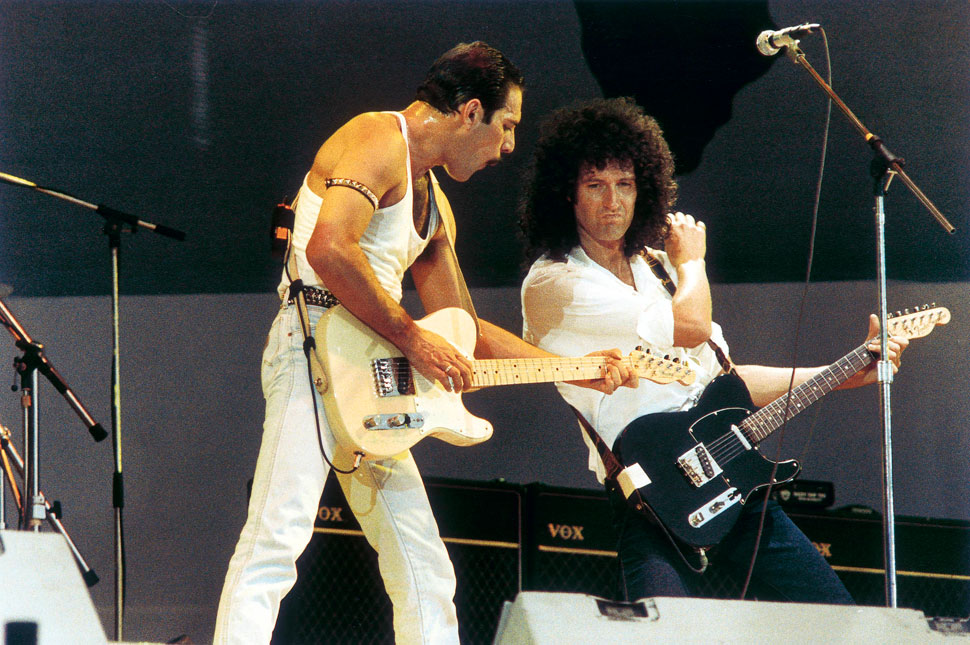
The 17 minutes on stage at Wembley Stadium in July 1985 transformed Queen, and remade them into a wonderfully camp, sleek and ubiquitous rock band, and the biggest British live act of the 80s. A renaissance of sorts had begun with The Works, in 1984, and the videos for Radio Ga-Ga and I Want To Break Free, but it was their performance at Live Aid, where they were the only band cute enough to work out how to play all of their hits in miniature, that bought them back big-time. They hadnʼt appeared on the Band Aid single, and they had incurred the wrath of Steve Van Zandt after they played in Sun City in apartheid-era South Africa.
“I would have loved to have been on the Band Aid record, but I only heard about it when I was in Germany,” Mercury said later. “I donʼt know if they would have had me on the record anyway, because Iʼm a bit old. Iʼm just an old slag who gets up every morning, scratches his head and wonders what he wants to fuck.”
Before the Live Aid event, Freddie was clearer on his motivation for the show: “Iʼm not doing it out of guilt. Even if I didnʼt do it, the poverty would still be there. Itʼs something that will always be there, to be honest, when you think about it. All we can do to help is wonderful things. Iʼm doing it out of pride, pride that Iʼve been asked as well as that I can actually do something like that. And so basically Iʼm doing it out of feeling that one way all the hard work that Iʼve actually done over the years has paid off, because theyʼre actually asking me to do something to be proud of.
"Iʼm actually in with all the biggies and I can do something worthwhile. To actually sing something thatʼs an integral part of whatʼs going on, you know, and the song [ We Are The Champions] seems to convey that anyway, without us thinking about it. Thatʼs whatʼs magical, and I think thatʼs going to probably bring tears to my eyes, I tell you, when I do it.”
Legend has it that Bob Geldofʼs invitationʼ to Queen to play at Live Aid ran along the lines of: “Tell the old faggot itʼs going to be the biggest thing ever…” Freddie, naturally, found that irresistible.
“I think Bob Geldof has done a wonderful thing, because he actually sparked it off. Iʼm sure we all had it in us to do that, but it took someone like him to actually drive. And it is like a driving force, to get us all to come together. Weʼre going to do bits of Bohemian Rhapsody [but] basically, youʼre not trying to put across your new material or anything like that, youʼre playing songs that people identify with, and just make it a happy occasion. Itʼs not a promotional thing, itʼs a thing where you just have sit back and think what you can do.”
It was Geldof who best summed up the mood of the event and Queenʼs impact on it. “Queen were absolutely the best band of the day,” he remembered. “They played the best, had the best sound, used their time to the full. They understood the idea exactly, that it was a global jukebox. They just went and smashed one hit after another. It was the perfect stage for Freddie: the whole world. And he could ponce about on stage doing We Are The Champions. How perfect could it get?”
Freddieʼs long-term lover, Jim Hutton, had never been to a gig before Live Aid. In his memoir Freddie And Me he described the aftermath of Queenʼs all-conquering performance on that historic day at Wembley Stadium: “When he came off, he rushed to his trailer and I tottered behind like a puppy. His first words were: Thank God thatʼs over!ʼ Joe ripped his wet clothes from him and dressed him. Adrenalin still overflowing, Freddie knocked back a large vodka to calm himself. Then his face lit up. As we stepped out of the caravan we met a grinning Elton John. “You bastards…” he said to Freddie.
Mercury was so good that day that the Royal Mail put him on a commemorative stamp. Just visible behind him in the Peter Blake design is Roger Taylor, who, given Freddieʼs more exotic origins, became the first living Englishman ever depicted on a British postage stamp.
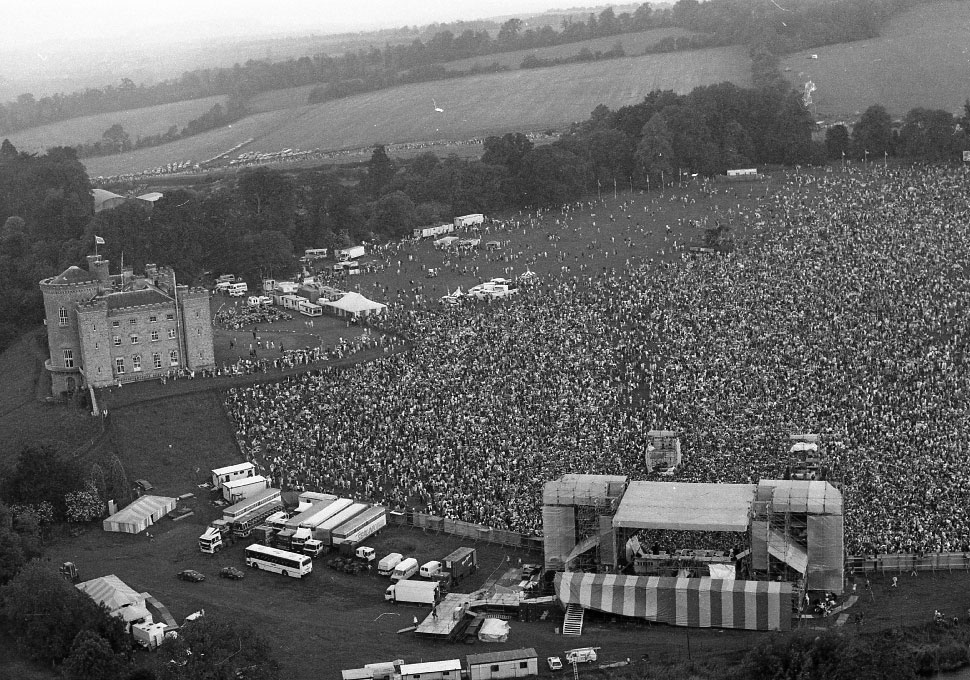
Although he’d seen poverty in India, for most of his adult life Freddie was extremely rich. He was open about the degree to which money drove his career. “How do we keep going, dear?” heʼd say. “Money, of course… I cope very well, actually. I spend. Spend, spend, spend. Well, whatʼs money for? Iʼm not one of those whoʼll get money and stuff it in a mattress and count it every night. I know several people who do a show and rush home to count the pennies. Iʼm not like that.
“Yesterday I went shopping at Cartierʼs. I rang up to see if they could leave it open for me, and they actually did. I went along and felt like Zsa Zsa Gabor. I spent… just put thousandsʼ. I love buying presents for people. Thatʼs a bigger thrill. Thatʼs what Elton does. He goes in there and says: Iʼll have 40 of those.ʼ I think thatʼs the fun. Iʼm just conditioned that way, Iʼll just go out and spend.
“Of course weʼre all in it for the money, and Iʼm not afraid to say that. Also the glory, but weʼve got all that. Most people say theyʼre not in it for the money. I love the money. Itʼs what keeps me going, but after twelve years of a certain respect musically, I donʼt want to just give it up.”
Roger Cooke, Freddieʼs brother-in-law, affirms Mercuryʼs flamboyant generosity: “We had the builders in, and they didnʼt seem to be getting anywhere, and he could tell that Kashmira [Freddieʼs sister] was really fed up. He just said: Have the kitchen on me – replace the lot.ʼ Kash said: Are you sure? Itʼll cost thousands.ʼ And Freddie said: But darling, Iʼve got millions. Have it!ʼ”
Queen rotated around the stadiums of the world after Live Aid. After their jaded years, they enjoyed an Indian summer of a career. Their greatest hits albums sold millions, too.
Mercury reflected at length on both band relations, and the meaning – or lack of one – in his success, in his long interviews with David Wigg.
“I think weʼve just grown so used to each other by now, itʼs just instinct that keeps us going,” he said. “Thereʼs no big bond. We donʼt socialise all that much. Because we were seeing each other so much on tour… seeing [the same] people hanging around would drive you mad. Musically we still respect each other, otherwise… I mean, we have four very different characters. It doesnʼt matter. If musically we donʼt get on then thatʼs when it starts and tempers… I mean, tempers do fly anyway, but itʼs just that if you canʼt stand the other person being in the room musically, then you have to say, well, forget it. I mean, itʼs just torture.
“But then Iʼve nothing else to do,” he said, and then laughed. “I could become a gardener, actually. I suppose I could become a Japanese landscape gardener. Why should I carry on? No, I mean I want to. We really didnʼt think the tour was going to take off in such a way. I mean, after Live Aid we thought Yesʼ, but now itʼs breaking all box office records in certain places. Thatʼs sort of more of an impetus to carry on, to be honest. Why leave now? What the hell am I going to do anyway?”
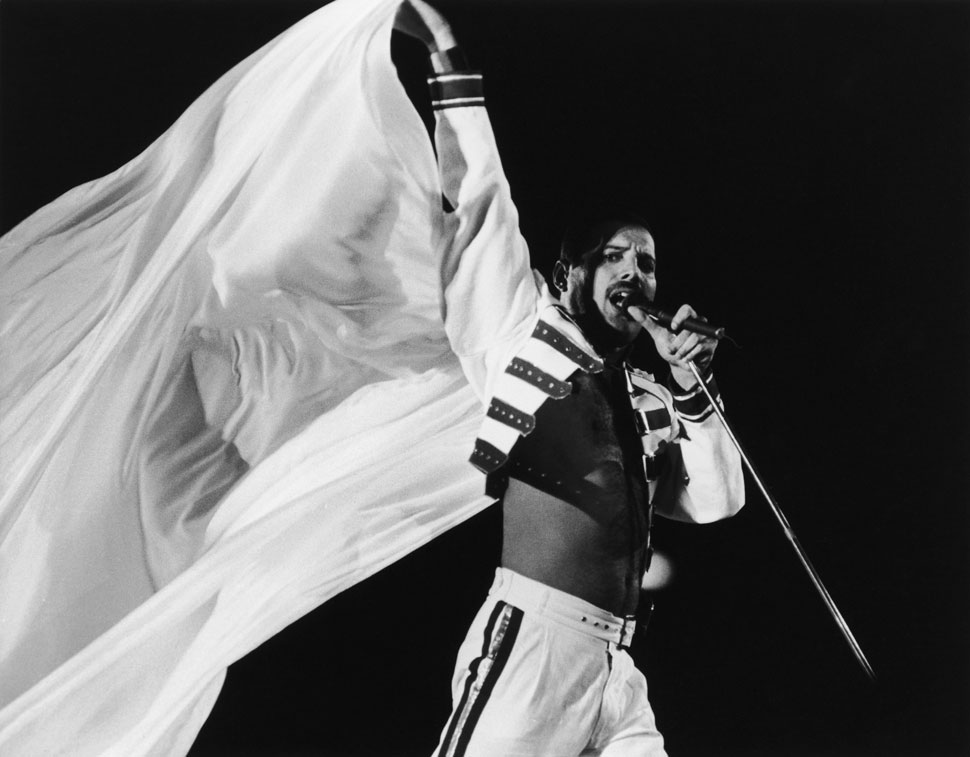
But Mercury seemed deeply ambiguous about the band and its future. The Works album had proved that Queen were a rare quartet, one in which each member had proved to be capable of writing hit tunes. The studio, he admitted, was the source of of some frustration.
“A lot of the time itʼs how each musician is displayed on an album. If I had more songs than somebody else, it would make them a lesser musician. Thatʼs how near the mark it is. Iʼm always trying to make it very diplomatic, so I just say, no matter what it is, we all have even songs from now on. Like in the eighties, I always wrote, Brian and I always wrote far more, but now itʼs come to the stage where they all want to pull their weight… And I think that in this point in time, that is the only way for Queen to survive.
“We canʼt just sort of live as a quartet all the time, so you feel like every time you make a move you feel like a four-headed gorgon or something. We all want to be an individual. Itʼs that break thatʼs very hard to do… Otherwise, itʼs horrible to be just be thought of as one quarter of some entity. But I enjoy it too. It is a kind of a hobby in a funny kind of way… Itʼs something thatʼs so rewarding in the end that you just want to keep doing it and do different aspects of it and see how they turn out.”
Mercury seemed to see the band set-up as a troublesome but needful relationship, where the aggravations of knowing each other so well and for so long were set against his love of, and need for, the drama and the friction in order for him to be at his best. “The challenge is trying to keep the band going when everybody says itʼs going to break up, to be honest. Thatʼs sort of turned round. We were all getting very despondent and we all wanted to do different things. And when you have that in your bloodstream, you just need the slightest excuse to actually break up the band.
“I had sort of made up my mind that after the tour we were going to… not let it out or anything, we were just going to finish the tour and then think about it. But having said that, I was the one that actually changed. Iʼm a man of moods. I suddenly thought that everything was going so well and I sort of… from somewhere or other, I got a sort of new-found force. Suddenly there was more left in Queen. I mean, we really want to stay together.
“When it gets pretty hectic is when we actually do an album, because we do get on each otherʼs nerves. You start thinking: Is it really worth it?ʼ After all these years, you donʼt want it to be such a fight to get anything done. But I think weʼre the four people in the end that need that kind of thing, even if we donʼt like it. If it was too easy, weʼd think: Oh dear.ʼ We have this wonderful space to do nothing, and then we think: Oh my God, weʼd better go back in and carry on fighting.ʼ I suppose thatʼs the way I am.”
Freddieʼs solo career, which began late in his life, did provide him with some fun and some affirmation of an identity outside of the band. Recording the wonderfully mad Barcelona with the diva Montserrat Caballe was a huge thrill for him: “Iʼm smiling from my ass to my elbow, dear,” he said. “Sometimes I sit at home like Iʼve just swallowed the canary, thinking: Ooh, thereʼs a lot of people whoʼd like to be in my shoes right now.” He also had a hit with a cover of the old standard The Great Pretender, a simple song into which he read a deeper metaphor for his life.
“These images that Iʼve portrayed over the years, itʼs a kind of pretence. I wore costumes and put myself in different atmospheres and characters, but underneath that there is a real me. Iʼve been pretending all this time, wearing bananas on my head, wearing glitter and coming along on peopleʼs shoulders. It was all a pretence, whereas underneath it Iʼm still a musician. All the costumes and everything, a lot of people took it so seriously. I didnʼt give a damn. I thought: My god, theyʼve read far too much into it.ʼ”
For so successful and arguably so great a songwriter, Mercury regarded his creative output as disposable, again separating the private and the public man. “I write ʼem, and leave ʼem. If you asked me to play some of my older songs on the piano, I couldnʼt. I forget them. I learned them for the time. I have to go in a day earlier and try to work out all the chords to my own songs. I forget them very quickly. For example, Love Of My Life is adapted on stage for guitar, but it was written on the piano. Iʼve totally forgotten the original, and if you asked me to play that now I couldnʼt.”
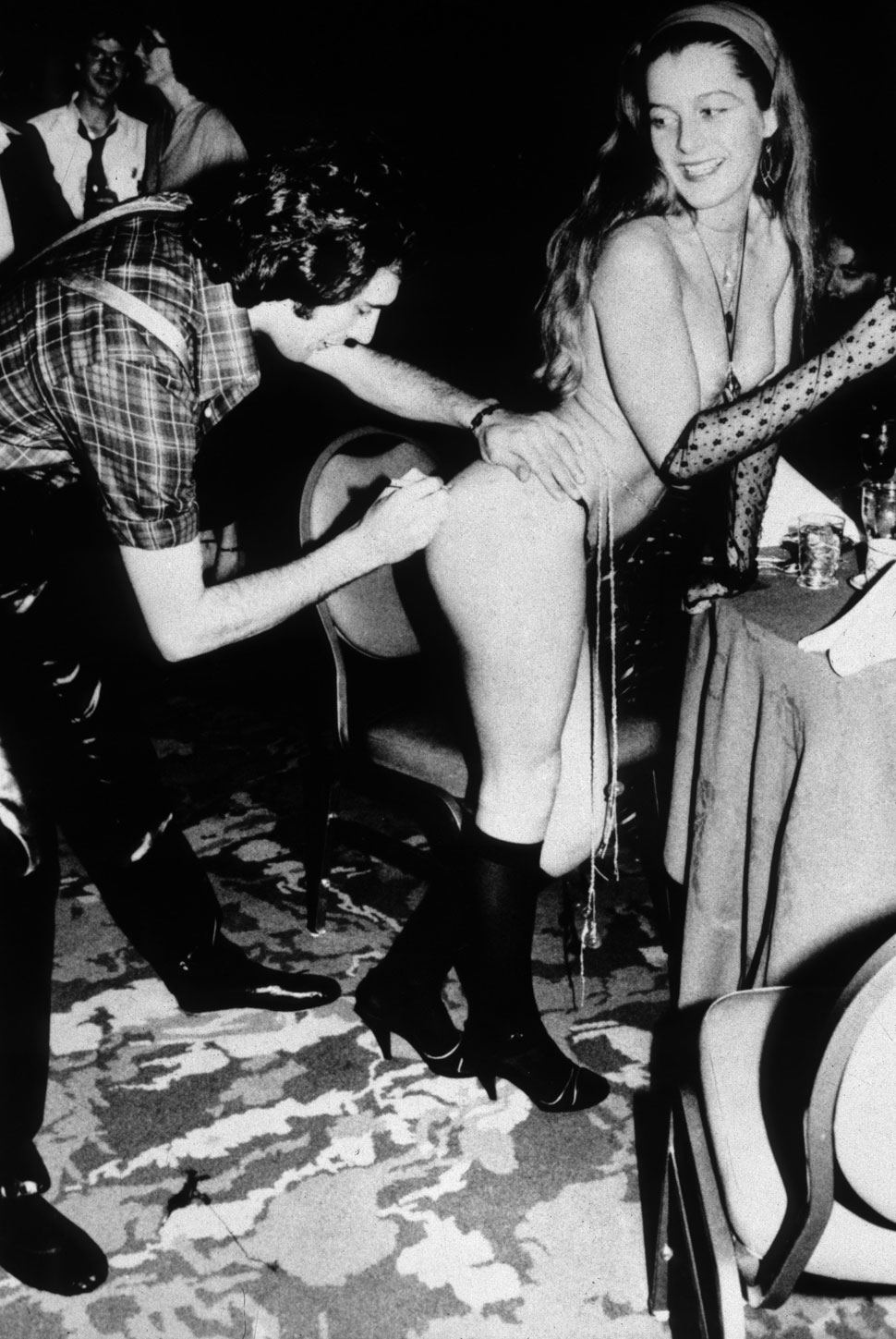
Queen’s ambiguous relationship with the press did have its advantages. The band threw parties to celebrate album releases and band milestones to which they felt free not to invite any members of the ‘fourth estateʼ. The parties grew in legend; they assumed the status of Bacchanals. While the more extreme stories of parties at which dwarves with bowls of cocaine on their heads circulated among the guest were never fully substantiated, those days were (nudge, nudge, wink, wink) wild times.
The party for the release of Jazz, for example, was on Halloween in 1978 in New Orleans, and featured a man who sat nude in a pile of chopped liver, lesbian double acts and transvestites. It was wild fun, but at a cost – a huge cost.
Brian May, speaking remarkably candidly, noted: “Youʼre universally adored and loved. But then youʼre surrounded by people who love you, and yet youʼre utterly lonely. You get to a place which is hard to really recover from, and Iʼm conscious that I never have really recovered. Itʼs like you never grow up. Weʼve all suffered. I know definitely we have. Freddie, obviously, went completely AWOL, which is why he got that terrible disease. He wasnʼt a bad person, but he was utterly out of control for a while. In a way, all of us were out of control and – perhaps I shouldnʼt be speaking for Roger and John, but I think underneath it they would agree with me – it screwed us up.”
May got married while he was young, and thus found himself in a different position to Freddie when the band were at their peak. Freddieʼs sexuality was fairly obviously bound up in his upbringing and background. Camp as a row of tents he may have been, but for six years he lived with Mary Austin, who was to become his dearest friend. May has noted that Freddieʼs song Lily Of The Valley (from Sheer Heart Attack) was about Freddie looking at his lover “and realising his body needed to be somewhere else”.
Nonetheless, Freddie long continued to take Mary Austin to family functions as his guest. He successfully compartmentalised his life; he played different roles to family, band and friends. This was, of course, his right. But before his final, long relationship with Jim Hutton he was, by his own admission, promiscuous through the late 70s and early 80s. By 1985, he was living alone, although Jim Hutton was soon to move into Freddieʼs Kensington home, Garden Lodge.
“At the moment, Iʼm living totally alone and Iʼm loving it,” Freddie said. “Iʼve sacked about three people that work with me. I was scared of doing that because I thought Iʼd hurt them, and then I thought: No, just do it.ʼ I have nobody staying with me, I have a cleaning lady that comes, and Mary comes and looks after me. It sounds poverty-stricken, doesnʼt it? I love it, I love the space.
“Iʼve stopped going out, whatever, and to be honest Iʼve almost become a nun. I learned the hard way. I thought sex was a very important thing to me because I lived though sex, and now Iʼve gone completely the other way. You see, Iʼm one of those people who can go from black to white; I donʼt like intermediary measures or anything. Itʼs quite easy for me to completely give up. I can give up alcohol at the drop of a hat. And yes, it [HIV/Aids] has frightened me to death and I have stopped having sex.
“I just like titillation now. Iʼm into titillation. What I was doing before… I was very greedy. People always want something more, and sex for me was fun. I was extremely promiscuous, but Iʼve stopped all of that. Practicality came into it. And Iʼm an old bird now, dear. The word ‘solaceʼ came into it, and you canʼt say you have a life of solace and then go round fucking half the world. And I donʼt miss it, I really donʼt.
"It was like a high. Everything was open to me, so in terms of music, sex was a very integral ingredient to what I was doing. It was a very major factor in a lot of what I did, but I would never have thought of sex and nothing else. It was all of these things, and I was living them to the full. There was excess in every direction. I was living what one would call a very full life in every direction. And why not?”
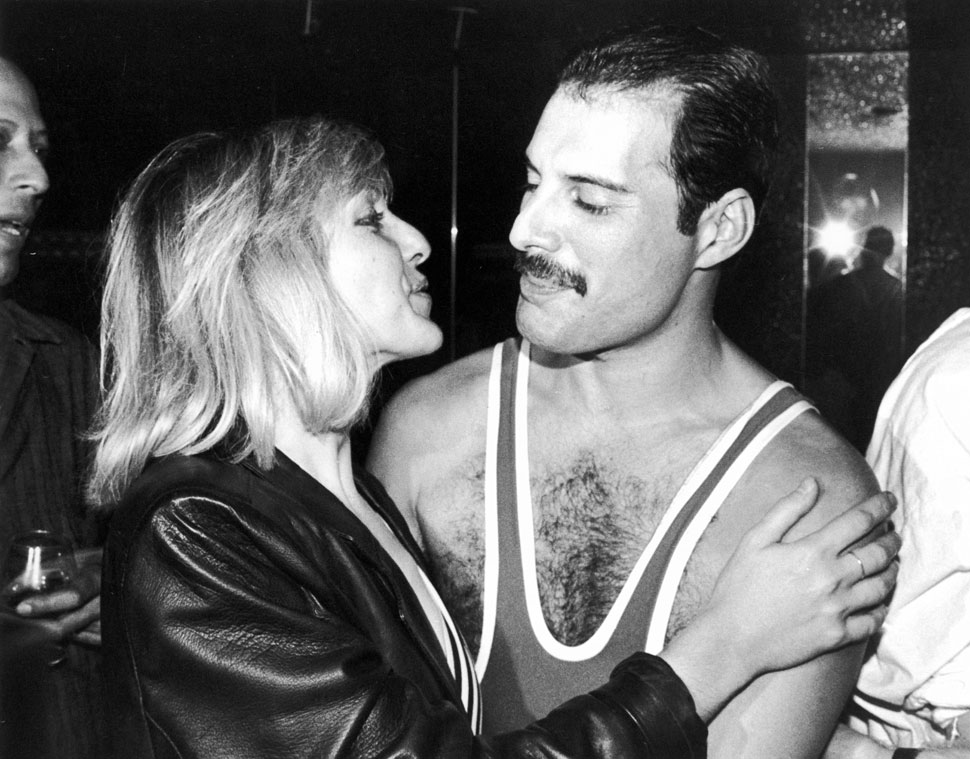
Obviously, the fact that Freddie Mercury was gay was not shock news, but he was deliberately vague publicly about his sexuality for many years. In 1987, he was hurt when a long-standing friend, Peter Prenter, sold a story to The Sun naming some of Mercuryʼs lovers. Two of them had died of AIDS. A follow-up piece named Jim Hutton as Freddieʼs partner, and speculated on a series of other lovers under the heading All The Queenʼs Men.
In 1989 Mercury was reported as have tested negative for the HIV virus. But his luck was not to hold. His withdrawal from public view and his brave and touching appearances in videos for the Innuendoʼ album told their own story.
“I am a bit reclusive actually, yes,” he said presciently in 1985. “But not in a Greta Garbo way. Itʼs not a sort of calculated thing. Iʼd hate to be on a desert island, without anybody. I would loath that. But they have to coax me to go out and volunteer myself into every day sort of way. I really have stopped all that. I do like people around me.
“Maybe itʼs a sort of shy outlook, whereas I can take enormous risks in the music world. Thatʼs an area in which there are no boundaries for me. I will take risks in music, but I wonʼt take risks in terms of social life. I want to go to places Iʼve never been, I want to go to Russia and China and places like that, places I havenʼt been, before itʼs too late. Before I end up in a wheelchair and canʼt do anything. And Iʼll still be wearing my same tights, going: Look…ʼ I can imagine them wheeling me on in a wheelchair, still singing Bohemian Rhapsody.”
From the touching account of Freddie Mercuryʼs last years that Jim Hutton gave in his book Freddie And Me, Mercuryʼs retreat behind the walls of Garden Lodge with a small group of friends and his “old faithful” Mary Austin was at the very least a contented time. Mercury quietly resigned himself to his fate, and lived his last years with dignity.
“Itʼs boring to be 70. I wonʼt be there. Iʼll be dead and gone, dear,” he concluded to David Wigg. “Iʼll be starting a new life somewhere else, dear. I donʼt have any aspirations to live to 70. I donʼt want to sound morbid, but 70 is a long way away, and if Iʼm dead tomorrow I donʼt give a damn. Iʼve lived, I really have. Iʼve done it all. I love the fact that I make people happy. Even if itʼs half an hour of their lives, if I can make them feel lucky or bring a smile to a sour face, that to me is worthwhile.”
Even in death, Freddie did it his way. He confirmed he was suffering from AIDS just two days before he died on November 24, 1991. He was 45. In contrast to the grand gestures of his life, his funeral was small and private, a 20-minute service conducted by two Parsee priests.
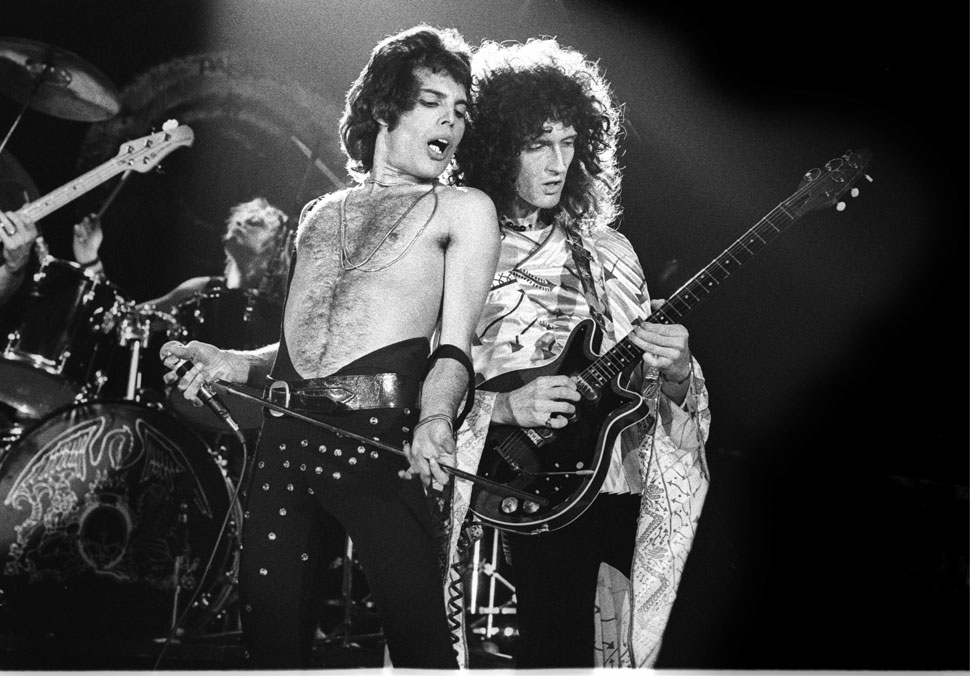
“My music is very safe,” Freddie once said. “Itʼs not political and I donʼt want it to be political in any way. To me, it really is fodder. Itʼs escapism, and I want them to enjoy the music for the period of time that they want. And when they donʼt like it, just discard it in the dustbin. Iʼm not going to be an Eva Peron; I donʼt want to go down in history worried about: My god, I hope they realise that, after Iʼm dead, that I created something or I was something.ʼ Iʼve been having fun, and I want to go on having fun.”
It was never just rock ‘n’ roll for Freddie Mercury. The king is dead. Long live Queen…
